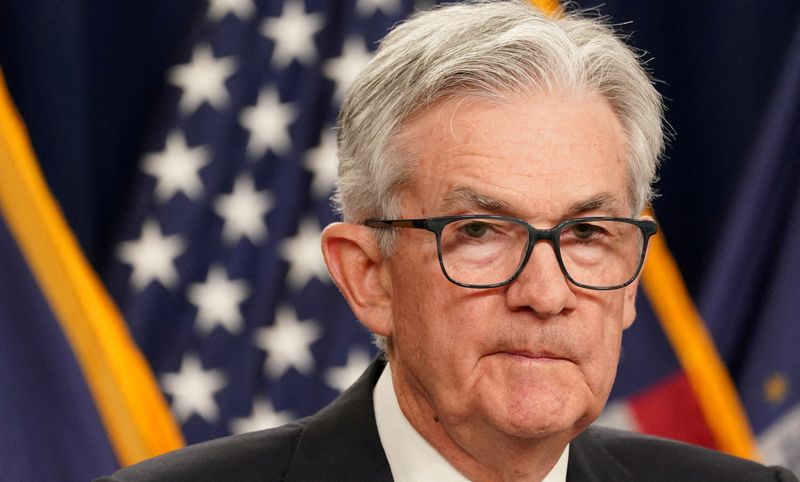2/2

© Reuters. FILE PHOTO: Federal Reserve Chairman Jerome Powell holds a news conference after the release of U.S. Fed policy decision on interest rates, in Washington, U.S, May 3, 2023. REUTERS/Kevin Lamarque/File Photo
2/2
(Reuters) – Americans’ confidence in Federal Reserve Chair Jerome Powell’s economic stewardship has skidded to the lowest of any recent U.S. central bank head, according to a Gallup poll released Tuesday that also showed broad doubts about the country’s economic leadership overall.
Just 36% of respondents to a Gallup poll taken last month said they had either a “great deal” or “fair amount” of confidence in Powell.
That was the lowest of any Fed chair since Gallup began the annual survey in 2001 when Alan Greenspan was in charge; the previous low was 37% for Janet Yellen, now Treasury secretary, during her first year as the central bank leader in 2014.
Powell’s confidence ratings among the public have tumbled by more than 20 percentage points from 2020, when in the early days of the coronavirus pandemic the U.S. public had the greatest confidence in him than in any Fed chair since Greenspan in 2004.
That downswing has played out alongside a surge in inflation that Powell and other economic leaders were slow to recognize and take action against.
After initially seeing inflation as a “transitory” problem that would sort itself out without the need for a major response from the Fed, Powell has in the last year orchestrated the swiftest rise in interest rates in a generation and inflation remains well above the central bank’s targeted level.
Powell, though, was not alone in seeing the U.S. public lose faith in his capabilities.
Confidence in President Joe Biden’s economic leadership slid to the lowest of his presidency at 35%, down from 40% last year and 57% in 2021 shortly after he took office.
Meanwhile, the public’s confidence in Yellen as Treasury secretary dropped to 37% from 54% two years earlier, the last time Gallup polled on that position.
The poll also found declining confidence in congressional leaders from both parties.
The poll was conducted between April 3 and 25 and included a random sample of 1,013 U.S. adults and had a “margin of sampling error” of plus or minus 4 percentage points.
Source: Investing.com




























